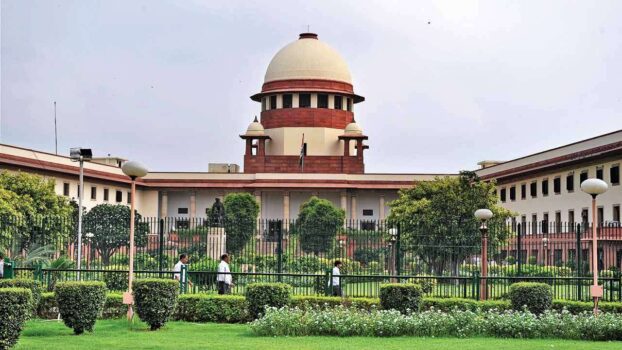New Delhi, July 19:
Show us a clear and concrete case indicating that Hindus are being denied minority status in certain states where they are numerically less, the Supreme Court said on Monday as it examined a petition challenging validity of legislations that restrict minority benefits to only six communities in the country.
“Present to us an authentic situation where Hindus may be minority in some states and they are being denied,” said a bench of justices UU Lalit, S Ravindra Bhat and Sudhanshu Dhulia.
The bench was hearing a public interest litigation (PIL) filed by Devkinandan Thakur, a Mathura-based religious leader, challenging the provisions of the National Commission for Minorities (NCM) Act, 1992 and National Commission for Minorities Educational Institutions (NCMEI) Act, 2004 that restricted rights available for minorities, including to establish and administer institutions, to six notified communities — Christian, Muslim, Sikh, Buddhist, Parsi and Jain.
“The cause of action will arise if someone is denied the said right. Have you challenged the denial to any institution? You are directly challenging the legislation,” the bench said. “Today we are going ahead with this challenge in thin air. When there is a concrete case before the court, it can be considered.”
The court adjourned the matter by two weeks.
Appearing for the petitioner, senior advocate Arvind Datar sought time to respond to the court’s query.
“The whole problem seems to be in recognising Hindus as a minority,” said Datar. “I understand where the court is trying to get to — unless there is concrete case and there is denial of such right to Hindus…”
The lawyer also pointed out that a petition challenging the criteria of identifying minorities under Section 2(c) of the NCM Act and Section 2(f) of the NCMEI Act was pending consideration before a separate bench of the court.
The bench told Datar: “We are talking about linguistic and religious minorities. Every person in this country can be a minority. Marathas will be minority outside Maharashtra. Similarly, there are linguistic minorities in every state. It cannot be regulated by statute.”
Datar informed the court that on the same issue pending before the other bench, notice has been issued and Centre has filed its response.
“Past judgments of the Supreme Court in TMA Pai case have held that the minority has to be identified qua states. In the absence of a notification under the statute, we cannot enforce our rights,” Datar told the bench.
The court explained that for exploring this issue, “one needs to understand the status given to each minority” (religious or linguistic) and to see whether “you are being denied rights” under the said status.
“We do not know… Hindus may have taken minority status is Kashmir. On population basis, we should not be doing this exercise,” the bench observed. “At the same time, if a Sikh institution is claiming minority status in Punjab or a Christian institution claiming similar status in northeastern states of Manipur or Nagaland it will be travesty of justice. Such status is state dependent while some minorities are pan-India, such as Jews and Baháʼís, who cannot be majority anywhere.”
Advocate Ashwini Kumar Upadhyay, who is pursuing the same cause before the other bench where the issue of identification of Hindus as minority is pending, told the court that the matter could be heard with the pending cases. The bench, however, said, “Unless and until we get concrete examples, we will not get into the fact situation of this case.”
Incidentally, the other bench of the court on May 10 this year allowed the Union government till August 30 to consult stakeholders and submit a report on whether minority status could be given to a religious community based on its population within a state.
The order was passed after the Union ministry of minority affairs submitted an affidavit, pointing out that the question involved has “far-reaching ramifications throughout the country” and, “any stand taken without detailed deliberations with the stakeholders may result in an unintended complication for the country”.
By this affidavit, the Centre tried to improve upon its earlier stand taken on March 28 this year where it dismissed the plea filed before the court as “untenable and misconceived in law”. It further said that Parliament and state legislatures have “concurrent powers to enact law to provide for the protection of minorities and their interests”.




